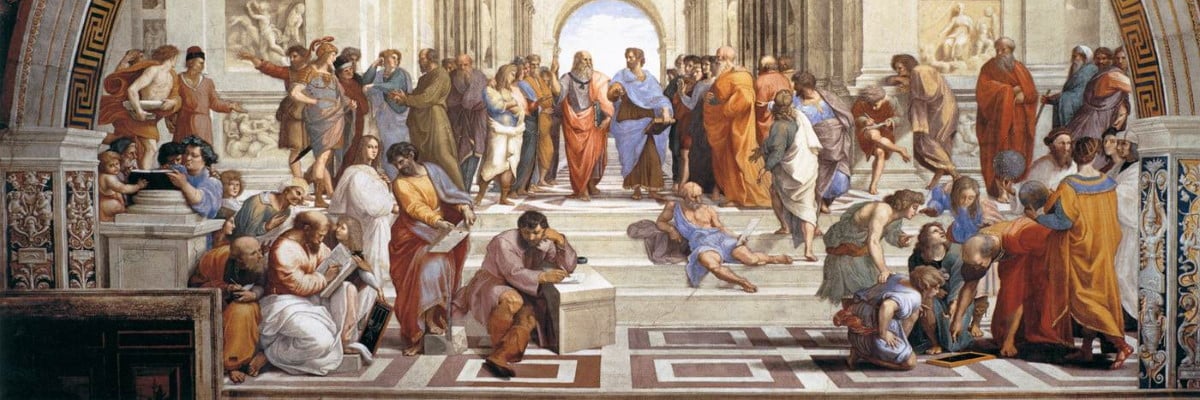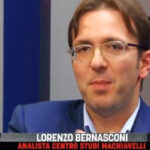A debate has arisen around the proposal of Carlo Calenda, leader of the "Azione" party, about a school reform that would provide for compulsory attendance, up to the age of majority, of a lyceum, which would be followed, for those wishing to direct themselves toward so-called technical professions, by a period of further training, alternative to university:
Let's stop neglecting non-functional knowledge. I'm making a proposal: all children of any social status should go to lyceum. Vocational and technical studies should be postponed until later. First we must form man and citizen.
The underlying rationale, which Calenda does not fail to make explicit, is that
in a welfare society until the age of 18 you shall learn art, history, music, culture, things that will give you a competitive edge later and, most importantly, avoid the frustration that comes from being channeled into one single occupation.
As a humanist, I find this a fascinating proposal: too bad, however, that a profound ignorance about the real conditions of Italian schools and society is evident from it.
Final blow to Italian lyceums?
In recent decades, as a result of reforms (large and small), a chronic shortage of personnel and spaces, and, finally, the repeated raising of compulsory schooling, the quality of Italian schools has declined dramatically. At the same time, the phenomenon of "henhouse classes" of thirty or more students, which are becoming increasingly common, has worsened. To further swell the ranks of high schoolers with more kids who would like to be anywhere but there would benefit them very little, and would instead be to the detriment of fellow students who have freely chosen that type of study in accordance with their own inclinations.
Forcing then to study Latin or physics kids who have no interest, nor any aptitude, for these subjects will only generate frustration in them and also worsen the quality of the school experience for their more gifted or more willing classmates; since, as anyone who has stepped into a classroom well knows, the "pace" at which the class proceeds is necessarily that of the slowest of pupils. In compulsory schooling, rightly so, every effort must be made not to leave anyone behind.
A silver-spoon-born proposal
Moreover, it should not be forgotten that one of the main attractive factors of technical-professional studies has always been the possibility of entering the labor market at a younger age, beginning at around the age of 20 to earn and afford things for which those who had instead opted for a lyceum path would then have had to wait until the completion of a university degree, that is, at least 4-5 years longer.
This, of course, is of little importance to those born into a wealthy family: I have no doubt that, for Calenda's children, starting to earn money perhaps even at the age of 30 would not be a problem at all and that they could in the meantime lead a more than comfortable life thanks to family support. To believe that this applies to all Italian youth, however, is to have very little awareness of the conditions in which this country dwells.
Lettera150's criticism
Is it therefore appropriate to clap the many voices from the right branding Calenda's proposal as absurd and anachronistic?
In my opinion, no. While I agree, in fact, that the Azione party proposal should be rejected, I find the reasons brought by the Italian Right against lyceum for everyone to be misguided.
I take as an example the communiqué of the think tank "Lettera150," as much of the objections that have been opposed to Calenda's suggestion are summarized there. The signatories of Lettera150 assert that
It certainly appears contrary to the need for the enhancement of young people's individual talents and to meet the needs of the productive sphere. If anything, it is necessary to think about strengthening technical-professional education, transforming it into a first-class school, not the second or third choice of young people and families, as is unfortunately still the case today.
Now, there is no doubt that a single educational pathway would be less respectful of the differences, in terms of interests and aptitudes, among students. It is not clear, however, why providing a greater preparation in terms of general culture even to those who will be warehouse workers or beauticians would mean going against the needs of the productive world: perhaps because it would delay their entry into the labor market by a few years? And even if it were: does schooling really serve only to meet the needs of companies? Should it not, perhaps, represent first and foremost an opportunity for intellectual emancipation and a pathway that helps to acquire the cultural tools essential for living within an increasingly complex society?
And is it then true that technical-vocational education is perceived by Italian families as a second or third choice, or is it the university professors and political leaders - all of whom, in almost all cases, have a high school background behind them - who project onto others what is actually their unconfessed prejudice?
The "juice" of culture
Finally, while it seems difficult not to agree with Lettera150 coordinator Giuseppe Valditara when he states that "underlying the Azione proposal is the idea that approaching work as early as during school is a negative thing, when in fact learning to make is a useful formative experience, which should rightly be declined in the various types of high school," the conclusion that "it is the values of classical culture that should be transmitted even in technical and vocational institutes, it is not the laboratory or in-company experience that should be eliminated," is very puzzling.
I find indeed curious this idea, lately quite widespread in Italian intelligentsia, that the "values" of a given culture can be extracted or distilled by separating them from the contents, not even if we were talking about lemon juice or grappa.
Does anyone really believe that it is possible to convey the values of primitive democracy without studying a little Greek history? Or the relevance of rationality and logical thinking without a little background in philosophy, or the importance of the rule of law without confronting ancient Rome? Do we seriously think that children can appreciate a republican regime without knowing medieval monarchies and the French Revolution?
I am very much inclined to doubt this. And, since it is unthinkable to multiply indefinitely the teaching and the classroom hours, it is clear that any schooling necessarily rests on a series of compromises, neither simple nor trivial, in the constant search for a balance between content that is of immediate applicability in the work environment and other content that will prove useful to the student primarily in orienting himself or herself within a complex and constantly changing world.
Don't forget society in the name of economy
That is why, while I dismiss Calenda's proposal as the boutade of someone who has no idea how the majority of the population lives, I do not share the hastiness with which his detractors have dismissed it without appeal on the sole basis of mismatch with labor market needs.
Before they are future workers, students are people, and they are tomorrow's citizens: while the future of our economy will depend in part on their professional skills, the future of our society will depend on their ability to read the world. I do not think it is less important.
Research Fellow at the Machiavelli Center for Political and Strategic Studies, formerly worked as a consultant at European Parliament, Presidency of the Council of Ministers, Chamber of Deputies and Ministry of Economic Development. M.A. in Philosophy at the Catholic University of Milan.








Scrivi un commento